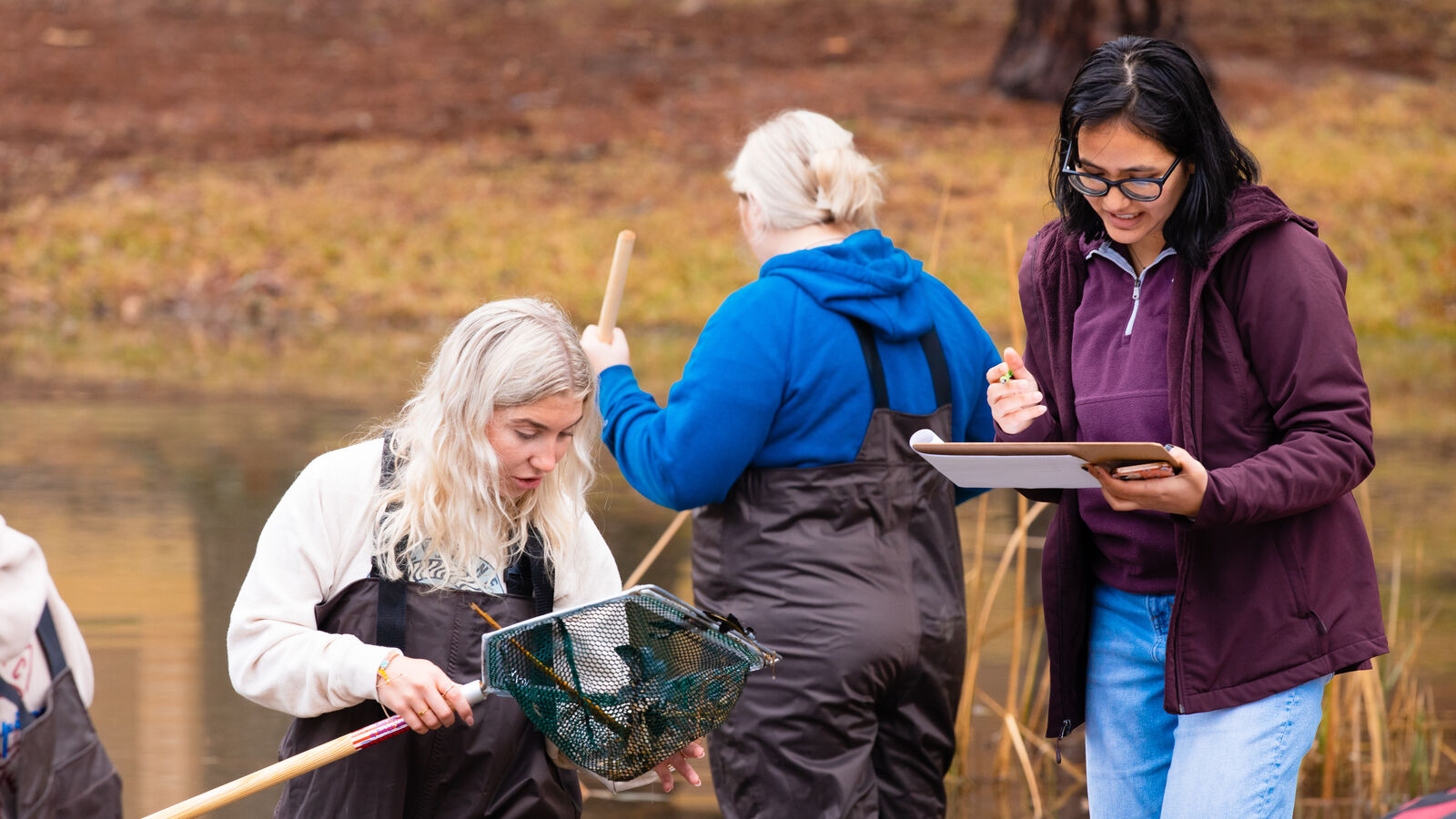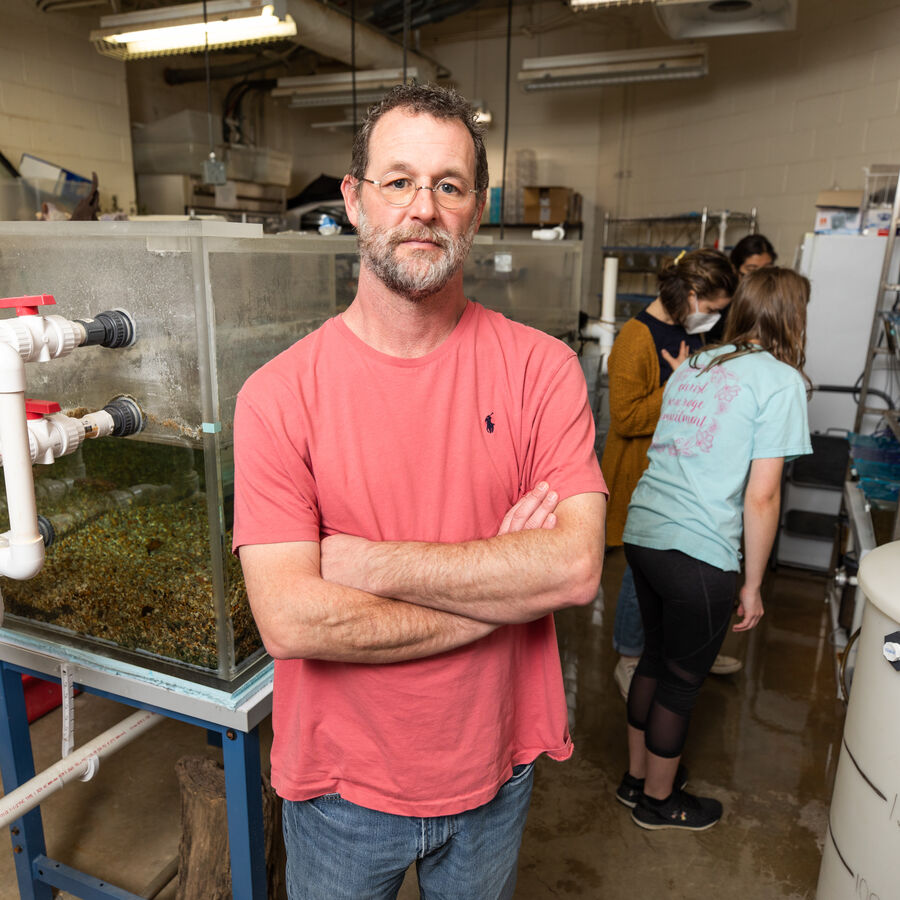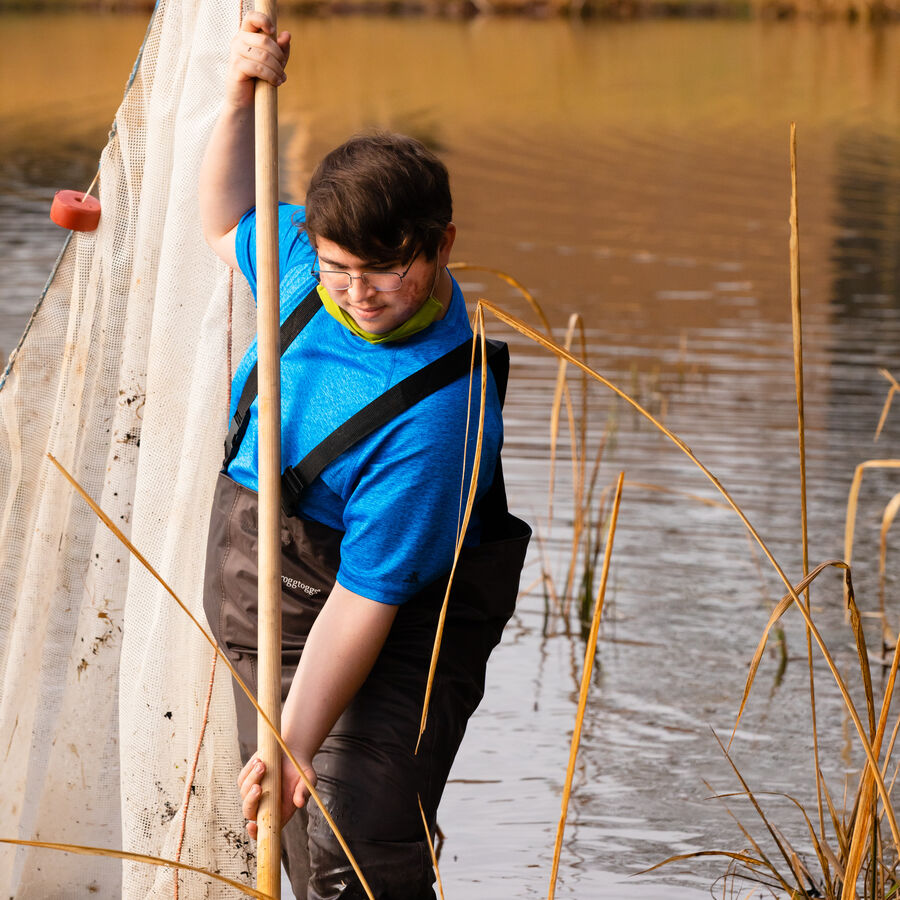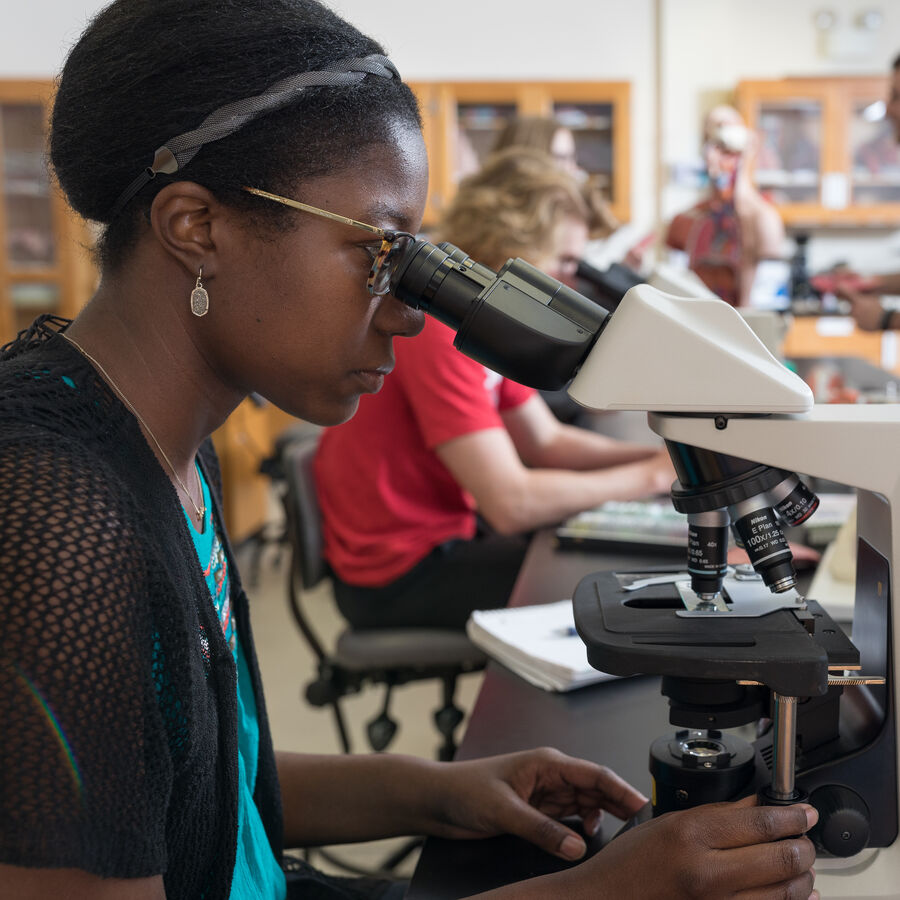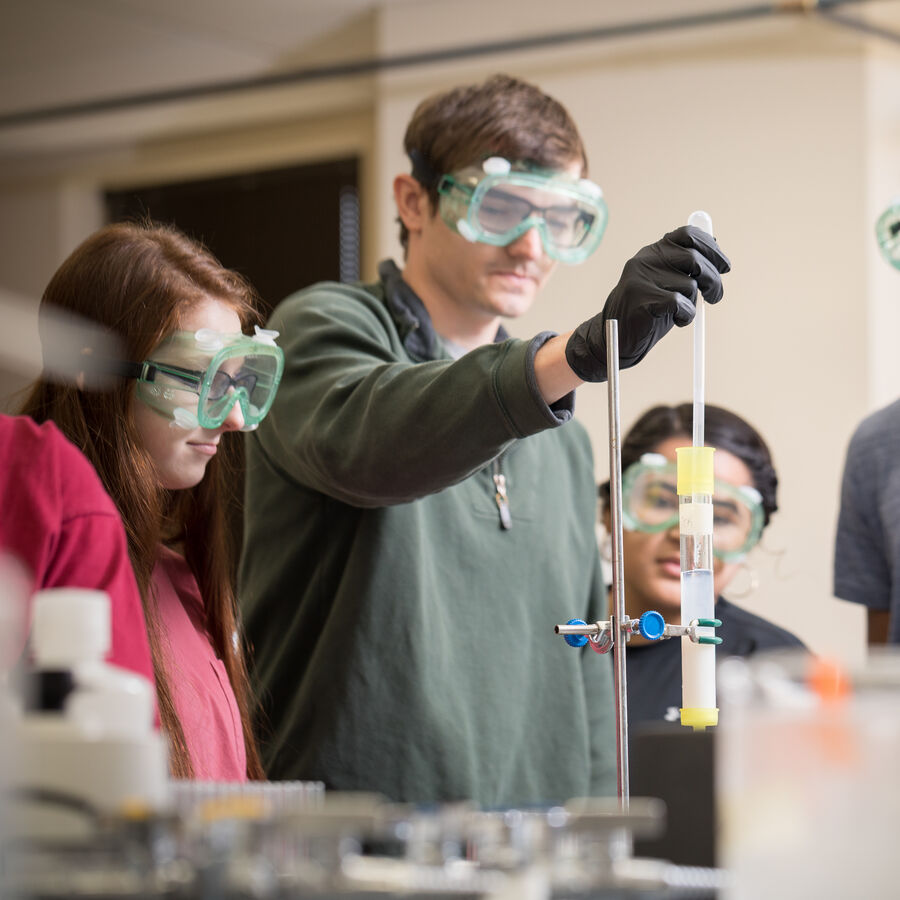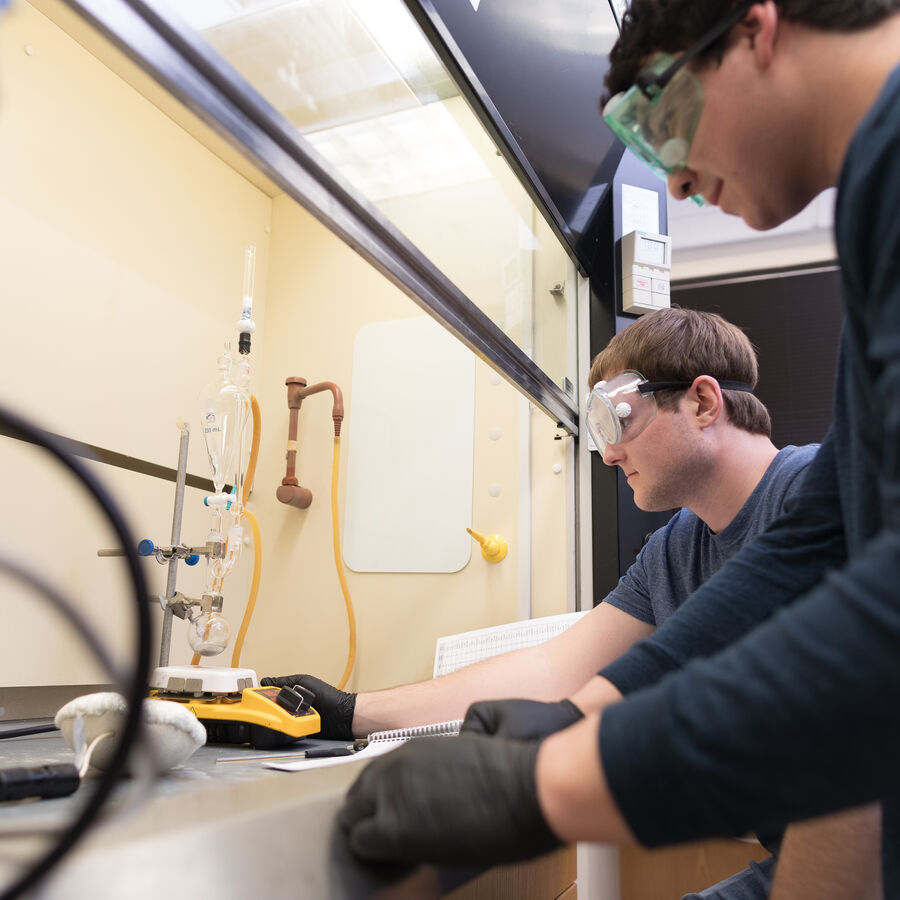Cutting Edge, Research Focused
Biology studies living organisms. It is a broad field, encompassing everything from large animals and plants to the tiniest microorganisms.
And, career options are just as varied as the organisms biologists study. Lab technicians, forensic scientists, nature conservation officers, science writers, doctors and food scientists may have all started their careers with a biology degree. A BS in biology from The University of Texas at Tyler sets you on the path to pursue your passion.
Why Major in Biology at UT Tyler?
Explore the world from a different perspective — one where you’ll study single-cell organisms to the behavior patterns of large, complex ecosystems. Distinguished faculty published in leading scientific journals guide your journey, from classrooms to research labs, and highlight the scientific field’s vast applications.
Whether you picture yourself making discoveries in a lab or improving patient care in the health professions, learn more about the opportunities available to biology majors at UT Tyler:
- Research: You’ll conduct research alongside your professors starting in your first year, gaining hands-on experience using scientific methodology. At the same time, you’ll learn from professors actively involved in the UT Tyler Center for Environment, Biodiversity and Conservation, which specializes in ecology, conservation genetics, genomics, landscape ecology, environmental economics, policy and regulation, hydrology, water and air pollution, and green supply chain research.
- Medical breakthroughs: Students have the opportunity to conduct research through The University of Texas at Tyler Health Science Center, a unique academic health center on the leading edge of medical and clinical research. The UT Tyler Health Science Center’s research influences the patient care provided at UT Health East Texas, contributes to medical breakthroughs and enhances the Health Science Center’s community outreach efforts.
- Facilities: Our outstanding facilities include state-of-the-art laboratory equipment, a landscape ecology laboratory and extensive supporting equipment and software, and equipment necessary for field research.
- Sustainability: We care about environmental sustainability. Eleven members of the biology faculty are actively involved in biodiversity and conservation biology research.
- Networking: Make connections through the UT Tyler TriBeta Biological Honor Society or the Pre-Health Student Association for students studying for a career in medicine.
- Pre-professional preparation: The BS in biology overlaps with and can help fulfill requirements for various health professional programs, including medical school, dental school, vet school and physician assistant programs in Texas and elsewhere.
What You’ll Learn
The BS in biology prepares students for a flexible and varied career or professional studies. Ten preprofessional tracks offer solid preparation for a range of health science programs. This teacher certification option equips students to obtain the composite science certification at the high school or middle school level.
Along all paths, this biology degree delivers a solid foundation and exposure to new areas of cutting-edge research, including environmental biology, genomics, immunology and bioinformatics.
Core courses taken by all biology majors include:
- Biological Evolution
- Cell Biology
- Ecology
- General Biology
- Genetics
- Plant Biology
- Scientific Communication
Biology electives include such specialized courses as:
- Aquatic Biology
- Biogeography
- Entomology
- Herpetology
- Immunology
- Ornithology
- Physiology
- Microbiology
- Conservation Biology
- Genomics
- Bioinformatics
- Immunology
- Vertebrate Natural History
- Wildlife Conservation and Management
What Can You Do With a Bachelor’s Degree in Biology?
Where will you make discoveries? Launch your future in multiple directions with a BS in biology from UT Tyler — toward a research career in industry or government, teaching the next generation of students about living organisms, graduate school or a health professions program.
The U.S. Bureau of Labor Statistics estimates that there will be nearly 114,000 new jobs in the life, physical and social sciences between 2020 and 2030, which means that biology and related fields represent a high-growth area.
Biologists grow our collective understanding of the world while contributing to innovation in molecular biology, biotechnology, microbiology, forensics, environmental biology or the health sciences, influencing public policy and conservation efforts or engaging middle and high school students to explore the field further. Which career you choose depends on your interests and whether you plan to continue your education.
